-
English rights for the Indian Subcontinent sold to Amaryllis/Manjul Publishing (India)
Born to privilege and wed to her high school sweetheart Veer, a free spirited Maya feels trapped in a conventional upper class family with patriarchal expectations in India. Claustrophobic within the dark walls of the mansion she lives in with Veer, Maya starts living precariously through the threads of her curiosity. This curiosity leads Maya to unearth a dark family secret, a brutal ancestral murder which begins to haunt her and also affect her new marriage.
To escape the malicious spirits lingering in the house, Maya and her family fly to a new land and discover the rough corners, hardship, and the bounty that this adopted country offers. As Maya tries to rebuild her life amidst adventure and the struggles of settling in a new country, her relationship with Veer is tested beyond its limits. Not knowing that the ghosts of their past have followed them, in a race against time, Maya is put to a final test. Armed with conviction and hope, Maya sets out to face the dark forces that lie await.
Peacock in the Snow is a one-of-a kind genre-bending thriller about the power of an eternal love, which survives through three generations of heartbreak, across two continents, and speaks to the tireless capacity of the human spirit to love, hope, strive, and succeed despite impossible obstacles.
“This is a thrilling page-turner that keeps you on the edge of your seat. It combines several themes commonly found in Canadian literature woven together in an arresting story. The foreground story is the conflict faced by immigrants facing a new land and a different culture reminiscent of writers like Bharati Mukherjee, Madeleine Thien, Saleema Nawaz, and Kim Thuy. Added to this are healthy doses of the naturalist theme so common in Canadian literature identified by Margaret Atwood and found in the works of Fred Bodsworth, Frederick Philip Grove, and Margaret Ostenso, with a touch of that mixed feeling of terror and romanticism about the north found in Farley Mowat and Mitiarjuk Nappaaluk. This is a highly entertaining novel that also says much about contemporary Canadian society.”
— David Siegel, professor of political science, Brock University
“This book is like cinematic story-telling. As a filmmaker, I am drawn to the scenic imagery that is evoked in both India and North America. The image of a peacock, flush and vivacious, dancing on a frosty landscape; the ethereal picture of young love; a large pepal spreading its aura over a lotus pond on warm full-moon nights; the colossal haunted mansion, long passages, dark halls and menacing secrets; the whispering wind; chaos of Indian weddings and the tranquillity of Canada; rusticness of small-town Ontario, sparring with the Algonquin black bear, conifers under a pink sky, granite ridges and canoe rides on silver rippled lakes; husky- sleighs, inuksuk and the great white north. A complexity of symbols and characters. The aunties and the mother-in-law, the governess and best friend, the greedy agent, the idiosyncratic Sikh, Canadian friends and William. And of course the protagonist and her love. What intrigued me was the simplicity with which the paranormal elements were normalized, the ease with which they flew in and out of routine life. The story had the capacity of a rare connectedness – of pulling the weight of small details, incidences and characters from the past, to the present to the future. With so much to offer, I would be very happy to see this converted into a screenplay, one day.”
— Mike Pandey, filmmaker, winner of 3 Green Oscars, 300 Awards for Biodiversity, CEO, Riverbank Studios, India .
“I was intrigued by the protagonist Maya. Vulnerable, sensitive, a survivor. For me, this book wasn’t about Delhi’s middle-class opulence, or immigrant integration or even a lost love (although it had all these ingredients). We started with a central conflict of why Maya was marrying if she didn’t want to? And then discovered that the reason for Maya’s hesitancy was exactly what pulled her through to the end. I was hooked. As the story unfolded we saw another side of Maya’s surprisingly brave, curious, and adventurous spirit. Through Maya’s eyes, we saw mundane life and bizarre hauntings. Maya represented today’s women. She had to learn to be courageous in unique ways. Navigate the world of living and dead, over two continents. Maya had to travel far to find her peace. She was loving, flawed and hopeful and so human. Was there a bit of an autobiographical note of the author? With a beautiful ending, this book resonated with many bestsellers and is not to be missed.”
— Drupati Maharaj, Diversity Consultant, Canada
“Bold, feisty and fabulous. The peacock as a messenger of dreaming and embracing infinite possibilities. Snow as a channel of energy flowing from a higher spiritual plane. Intriguing, mesmerizing and mystical, the book’s sheer simplicity is overwhelming.”
— Dr. Deepali Kapoor, Counseling Psychologist, Delhi, India
“At the end of each chapter, I wanted to know what happened next. This reflects our struggles in our closest of relationships, human nature in all its facets- good to ugly, the pain of separation from our native lands and most importantly finding happiness in this new life. Read it! It will stay in your mind!”
— Asha Bidani, retd. teacher, Toronto District School Board
“A book that mixes the conversations, habits and conventions of parallel lives in India and North America. The writer explores this deftly through her own narrative as well as that of contemporary society in both places.”
The journey of a life of privilege in the East changes entirely in the West. The author shares this change through unforgettable experiences shared with unabashed honesty.
Anubha Mehta is an eloquent author and her novel Peacock in the Snow dares you to find yourself. You won’t regret it”
— Suparna Singh, CEO, New Delhi Television (NDTV) Group
“A page-turner…..If I read just the first paragraph, I would read the whole book…Anubha’s intrigue lives on in both India and Canada ..”
— Cindy Anne Smith
“Like the personality of the author, the peacock as a woman, dances, with abandon, without inhibition or restriction. She dances on a land that is not her’s, she dances with feet which are frozen in the snow, but she dances. And in that dance she radiates with a life that has lived and reflected all the moods and hues of the peacock’s colours. When she stops dancing, this snowy white land is no longer alien, no longer colourless. It too radiates with her adapted colours, and it too echoes’ some of her tales, making them its own. This is the hope of this vision. This is a tale that everyone from the East and the West should read. It catches your imagination at a level beyond cultural and geographic boundaries. It is a tale that I am sure most of us get surprised with, and love.”
— Jolly Rohatagi, artist-painter, professor, development and gender advocate
“A fascinating story.. ….written with a sensitivity that comes seldom ….a powerful contrast between India-Canada- covering many aspects of society.”
— Roy Wiseman, 2018, Executive Director, MISA/ASIM Canada, Board of Directors, Institute for Citizen Centred Service, Redt. CIO, Region of Peel
>

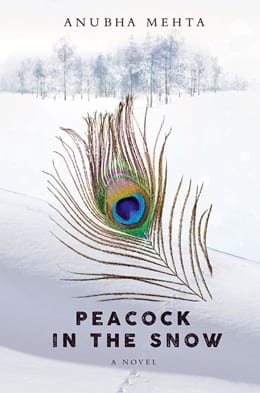

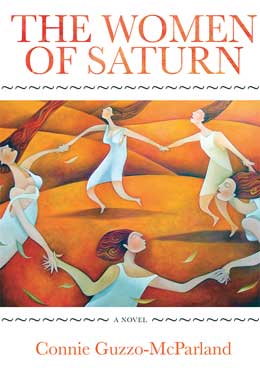
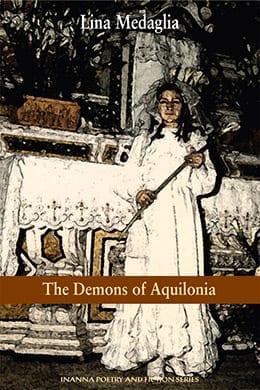
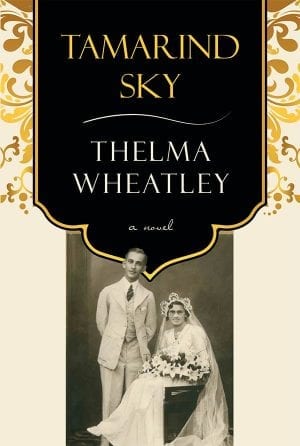
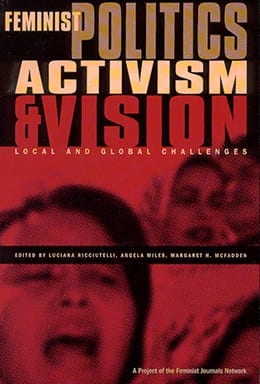
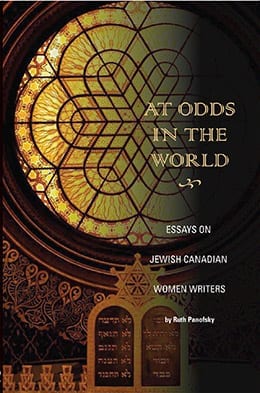

inannaadmin –
Peacock in the Snow by Anubha Mehta
The Miramichi Reader – November 4,2018
http://miramichireader.ca/2018/11/peacock-in-the-snow-review/
Excerpt:
Anubha Mehta is a Canadian writer and artist who was born in India. With a doctorate in Political Science and two decades of Canadian public service experience, Anubha has been awarded for her leadership work for diverse communities. Her short stories and poems have been published in several Canadian magazines and journals. Peacock in the Snow is her debut novel.
As I consider my ever-changing “to be read” stack of books, there is currently a predominance of literature written by, and about the immigrant experience on both sides of the globe, starting with the old, established way of life then moving on to the stark reality of trying to adapt to life in a new country thousands of miles from home. Many, if not all of the stories are derivative of the author’s own experience, yet they write of what they know best, adding realism to the story and acquainting the reader with the unfamiliar aspects of immigration into Canada at the same time. Anubha Mehta’s debut novel is no exception…
The story starts in India in the year 1985. Maya’s wedding day has approached, and she is marrying Veer Rajsinghania, a man who comes from a wealthy, established Delhi family. Maya’s family, while not poor, has had to work for everything they needed, with no servants to assist them. Upon marrying, she is to live in Veer’s family mansion with the aged Shiela as her personal maid. Shiela knows all the family secrets, and Maya learns that she looks very much like Veer’s deceased grandmother Gayatri, who died at the hands of her husband many years ago. Veer’s mother shuns her, believing that Maya only married her son for his money, not for love. It is these secrets that dog Maya and Veer throughout the story, which moves to Canada where Veer is to establish an extension of the family business. I’ll refrain from telling any more of the story to avoid spoilers, but suffice it to say that challenges in their new life threaten their marriage (they have a little girl, Diya as well) in addition to the preexisting emotional and mental baggage they brought across the water from India.
…Overall, Peacock in the Snow is an ambitious debut novel that covers a lot of ground, and it has a kind of Disney-animation feel about it, which is not a bad thing…I would very much like to read Ms. Mehta’s next novel (or short story collection), as I feel she exhibits much promise as an author. I will add Peacock in the Snow to the 2019 longlist for the “Very Best!” Book Awards in the First Book category.